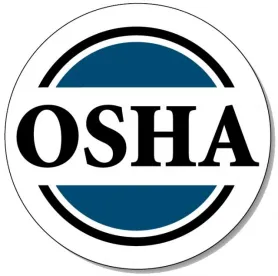With OSHA’s decision to withdraw its ETS in the face of a hostile Supreme Court, and the Court’s 5-4 decision to uphold the CMS mandate, it’s worth taking a closer look at the Sixth Circuit’s decision to stay the contractor mandate. Briefing in the Sixth Circuit on the contractor mandate should be finished around March 2, and the Eleventh Circuit has already scheduled oral argument in its own contractor-mandate case for April 4. We believe that the circuits and the Supreme Court will likely reject that mandate on the merits.
The contractor mandate requires employees of federal contractors in “covered contracts” to become fully vaccinated against COVID-19, covering one-fifth of the U.S. workforce. President Biden issued the mandate by executive order, claiming authority under the Federal Property and Administrative Services Act (FPASA). Judge Bush’s opinion for the Sixth Circuit found that the states and contractors had standing to challenge the executive order and held that the mandate exceeded the Administration’s powers.
On standing, Judge Bush held that the States were already affected by the mandate because the federal government was requiring various state entities (like a sheriff’s office) to sign contract modifications incorporating the mandate. Importantly, the States did not have standing under parens patriae to vindicate the rights of their citizens. The States could only invoke that authority to vindicate their own rights under the Tenth Amendment.
The majority opinion found the contractor mandate wanting because the FPASA does not contain language allowing the government to impose such a mandate on contractors and because the federal government had never before exercised similar powers. The Administration had relied on the FPASA’s broad statement of purpose, but the Court pointed out that the statute’s operative language was much narrower. The Court held that the FPASA authorizes the President to “implement systems making the government’s entry into the contracts less duplicative and inefficient . . . [I]t does not authorize him to impose a medical mandate directly upon contractor employees themselves because he thinks it would enhance their personal productivity.” The majority also held that the major-questions doctrine and the federalism canon—both of which played a role in the OSHA case, as our readers may recall—bolstered these conclusions. The majority also held that the balance of equities favored the challengers, reasoning that the federal government had delayed mandating vaccination even after the vaccine rollout, and that the mandate was already subject to a nationwide injunction out of the Southern District of Georgia.
Judge Cole dissented in part, arguing that the challengers did not have standing because they failed to introduce specific contracts into the record. He also found that the contractors’ anticipated failure to bid on federal contracts (because they would or could not comply with the mandate) was not a cognizable harm. Moreover, reasoned Judge Cole, the idea that state economies would be harmed by the mandate was “wholly speculative.” On the merits, Judge Cole explained that “courts have found a sufficiently close nexus between presidential action and economic procurement systems even when the connection is attenuated, or where arguments that the action arguably impairs economic interests could be advanced.” In other words, the President could take action because many workplaces now require vaccination. He also noted the harm to the United States that would occur without the mandate, such as productivity losses and scheduling delays due to COVID-19, while the challengers’ compliance costs were not insuperable.
In light of the Supreme Court’s decisions on the OSHA and CMS mandates, we believe that the Sixth and Eleventh Circuits are likely to overturn the contactor mandate on its merits. The outcome of a stay motion often prefigures the merits for issues, like these, that are almost entirely statutory or constitutional in nature.
Alon Farahan contributed to this article.





 />i
/>i
